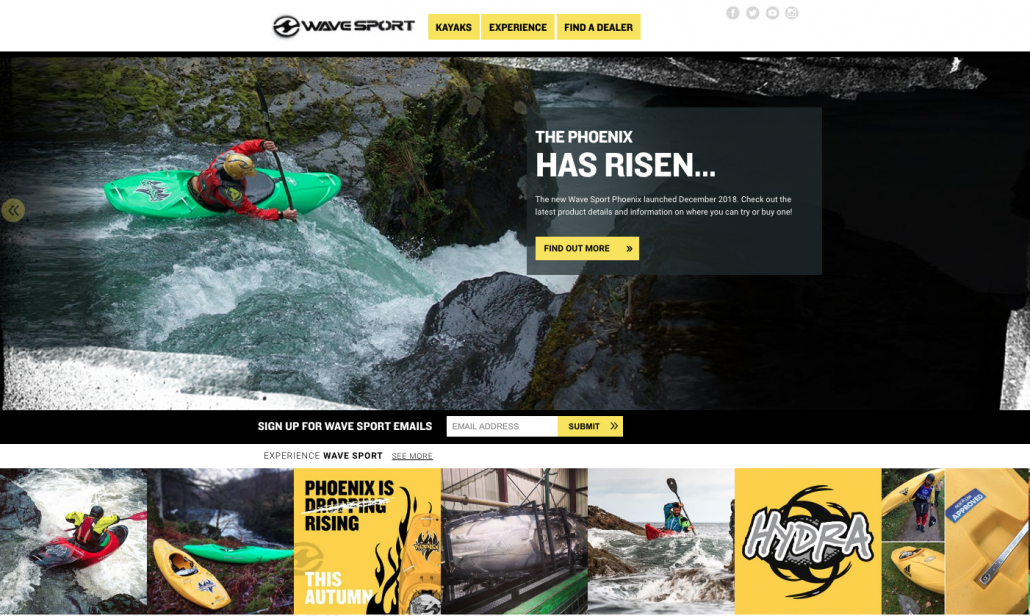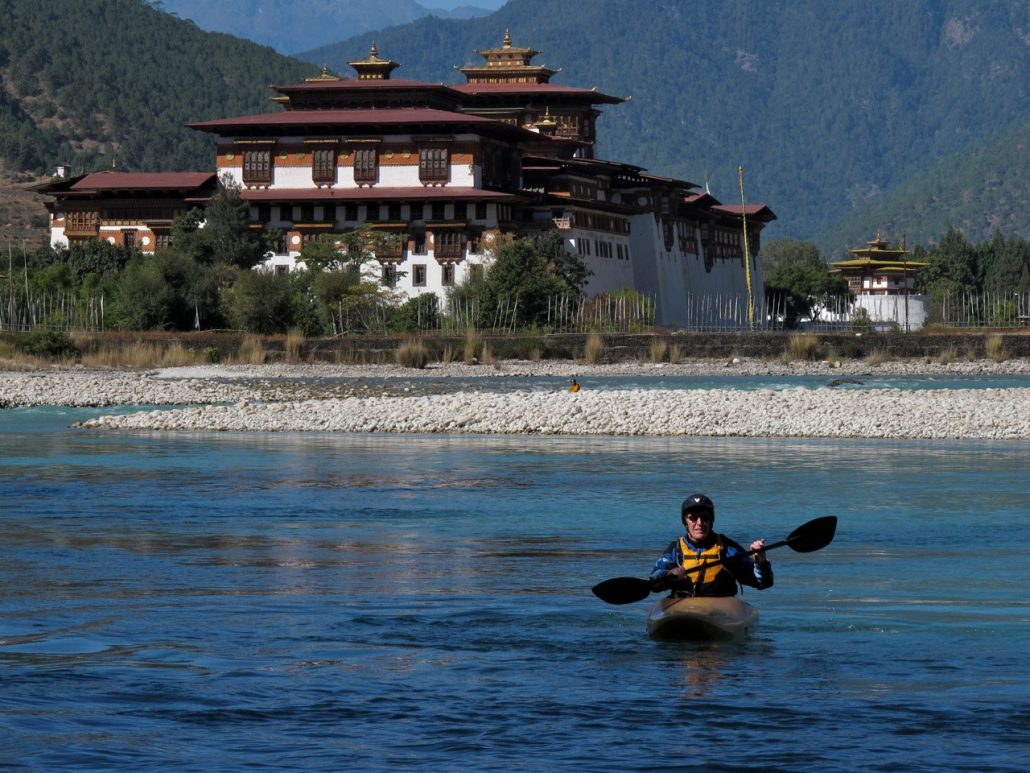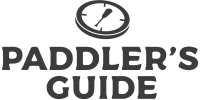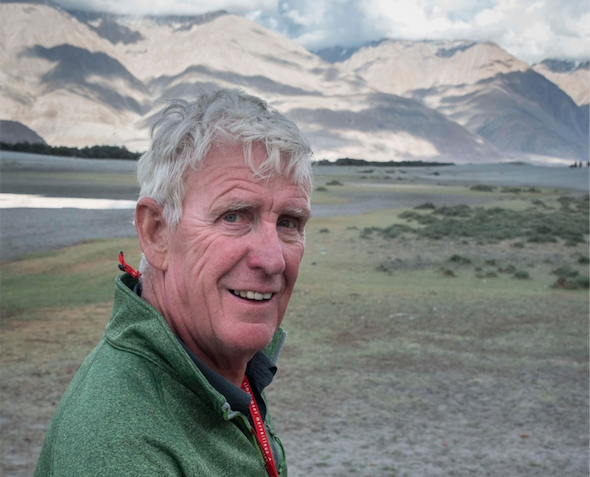Graham Goldsmith celebrated fifty years in business with Gaybo in 2018
Created in 1968, by the Goldsmith brothers (Bob and Graham), Gaybo stands as the oldest British boat manufacturer. After decades of producing high-end competition fiberglass boats, the company shifted focus to representing Perception Kayaks in Europe; not only distributing the brand but also producing Perception boats in the UK. This past September Gaybo announced further growth with their full acquisition of the US-based company Wave Sport. We caught up with Gaybo co-founder Graham Goldsmith to talk about the journey of the past 50 years, and about what lays ahead in the next 50!
PGM: Congratulations on 50 years in the industry! That is a remarkable achievement. How does it feel? Has your success in any way been a surprise for you?
Graham Goldsmith: Thank you, yes, the company was 50-years-old this year, and we marked the occasion. It’s not something you think about every day, but of course, it does make you feel proud every time you pass a car with your product on the roof, or you see your boats on the water or shore. As for 50 years, as they say, “Time does fly when you’re having fun.”
PGM: What has been the secret to your longevity?
GG: Running our company has been a team effort. There has to be a flexible approach, an ability to listen, and a willingness to switch directions when necessary; for instance, moving from composite manufacture to rotational molding. You have to be the best you can be. We believe it helps to be passionate about kayaking because it encourages us to make decisions that are good for not only ourselves but the sport as a whole. We have built and sustained an excellent reputation by designing and manufacturing kayaks we can be truly proud of over our 50 years.
Paddler Guide Mag: Perception is a US brand, and is monitored by Confluence in the US. What exactly is your role/relationship with Perception? Can you clarify the differences between being a distributor and what you do?
GG: Gaybo Limited was selected by Bill Masters, the founder of Perception Kayaks, to produce the Perception range for the European market. His decision to work with us was based on our reputation as a manufacturer of world-class kayaks and canoes. Our aim was always to manufacture the Perception kayaks that best-suited the European market and to distribute the models of lesser interest to European paddlers that did not justify duplicating overseas.
PGM: In some ways, you are dependent on the strategic decisions of Confluence, is that correct? For example, when it was decided that Perception, the most iconic whitewater brand, would only produce rec boats, did you have any say or influence?
GG: As a Licensee, we will always be dependent, to some extent, on the strategic decisions taken by the Licensor. When we were told that Perception would no longer make whitewater boats, we tried very hard to persuade them that Perception was an iconic brand in the whitewater world, and would have been better placed to carry on as a multi-faceted brand. Of course, it was disappointing; however, we also understand that a company who owns three competing whitewater brands has to find resources to develop those brands in every sector.
Our plan clearly show our intent for Wave Sport to reclaim its position as a leading “go to” brand on the whitewater scene.
PGM: Strategically speaking, what motivated your acquisition of the Wave Sport brand?
GG: The acquisition of Wave Sport was our opportunity to re-enter the whitewater market with a world-renowned whitewater brand that could run alongside Perception.
PGM: You are taking over a huge name in the industry, a brand that not so long ago was leading the charge in whitewater. Where do you want to take Wave Sport? What is the vision, what is the plan?
GG: Our plan is not only to grow the whitewater side of the business but to turn it into a “full service” brand. For instance, we started our plan with a cross-over boat, the Ethos, and have just introduced a 15-foot touring boat, the Hydra. Now our new Phoenix is rising, to clearly show our intent for Wave Sport to reclaim its position as a leading “go to” brand on the whitewater scene.

PGM: Paddlers worldwide have already started to ask when they will see new Wave Sport Boats everywhere in the world again. Is the plan to re-establish it a global brand?
GG: Our vision is to produce boats that are desired worldwide. Wave Sport is much loved across the Globe. We are already shipping outside of Europe and have every intention of helping paddlers around the globe rekindle their love affair. Wave Sport never went away; it just moved house, and we now have the opportunity to open the front door a little wider.
PGM: In the past, Gaybo had shaken the industry with major innovations, such as when you started using Kevlar for your composite line, or when you produced a plastic downriver kayak with Perception. Do you have similar ideas to return Wave Sport to the industry forefront?
GG: As well as Kevlar, we also pioneered the use of carbon fiber in competition canoes and kayaks back in 1969. Very few people were aware of this material at that time, as it had only recently been produced by engineers at the Royal Air Craft Establishment in Farnborough.
You mention the first plastic downriver kayak, but we also made the first plastic slalom kayak. Both were designed in the UK and marketed under the Perception name with the aim of promoting both classes and making the sport more affordable. With regards to the future, we will see what it holds. We collaborate with paddlers on new ideas and are always looking for advances in material.
The industry has changed immeasurably. When Gaybo started, the market was made up of many small manufacturers, who would have rejoiced at the prospect of an order for six boats.
PGM: You won a bronze medal downriver racing Bronze in Bourg Saint Maurice at the 1987 worlds, 18 years after your first worlds in 1969 in the same spot. What is your take on the evolution of competitive kayaking?
GG: Let’s say “I’m happy to have competed when I did.” Apart from improvements in personal equipment, the format of competition has changed radically, with the current emphasis on speed. For me, the switch to artificial courses has somewhat detracted from the appeal. Having said that, televising the sport, although it has affected course design and format, has brought high-level competitions to a wider audience.
PGM: Was it hard to stop producing competitive boats and re-direct your energy into promoting a more recreative form of kayaking?
GG: The writing was on the wall for British-based composite manufacturers due to strict Government legislation and labor costs. However, it was a hard decision to move from hand-built crafts to rotational molding. It took four years to complete the transition.
PGM: As a former competitor, are you ever tempted to return to that field?
GG: No! As per the previous question, that side of the industry has moved on considerably. To re-enter that market and compete effectively would be a massive undertaking, especially considering European labor rates and strict government legislation.
PGM: Brexit. What does it mean for the industry and for European and British manufacturers? Are there ways around it?
GG: Disaster, disaster, disaster! It was one of the saddest days of my life to wake up to the news that we were going to leave the EU. After 50 years of working with European companies and employing many Europeans, I have found our association to be of benefit to all.
As for the future – it is very unclear and is a question I am unable to answer. We will try our hardest to maintain our relationships with our European friends. We will also keep our fingers crossed that perhaps Brexit won’t happen.
Yes, I am optimistic about the future of paddlesports.
PGM: In what ways have the industry and the scene changed since Gaybo’s founding?
GG: The industry has changed immeasurably. When Gaybo started, the market was made up of many small manufacturers, who would have rejoiced at the prospect of an order for six boats. Each manufacturer sold directly to the customer, there were no retailers then. The most remarkable change I have witnessed in the industry has been the production of plastic boats leading to the explosion of recreational kayaking in all forms: whitewater, sit on top, touring.
PGM: What do you think there is to be gained from the popularity of recreational paddlesports?
GG: Kayaking, more than many other sports, is something that enables you to enjoy yourself with complete liberty and to truly appreciate the environment around you. There can be few better vehicles for capturing peoples’ imagination and illustrating to them the importance of protecting the environment- river, lake, or ocean- for the benefit of current and future generations.
PGM: You are now 70, and still paddle, which is inspiring. How do you chose to enjoy the water?
GG: Yes, I still paddle but not so often. For the past twenty years, I have been enjoying multi-day trips with very good friends in wonderful remote locations in America and Northern India, Nepal and Bhutan. Paddling rivers such as the Salmon, the Grand Canyon, the Zanskar, Tamur, Karnali, Drangme Chu…. too many to mention.

PGM: Gaybo is a real family affair; it started with brothers, and your son, Andre, has been aboard for some years now. How important is the family element of Gaybo to you? In what way has it influenced Gaybo’s evolution?
GG: To operate as a family is very important to me. As a family, you are working toward the same objective. I am proud of all my family who has worked to build the company over the years. Our employees, many of whom have been working with us for more than 25 years, have become an extension of our family. This also brings a huge responsibility on our part to maintain a healthy business for everyone’s future.
PGM: Are you optimistic about the future of paddlesports? What is your vision for the industry’s future?
GG: Yes, I am optimistic about the future of paddlesports. Despite the alternatives out there, the paddlesports sector continues to grow. Part of its main attraction is the relatively low cost of participation compared to many other water-based sports.
PGM: What can we as an industry do to improve our prospects for the future?
GG: In general, paddle sports is outstanding at self-publicity. We continuously seek to promote participation by highlighting the incredible experiences it provides. In the UK, brands have been particularly good at creating cooperative ventures on a national level, and we are currently engaged in a joint venture with British Canoeing that has the sole aim of increasing sustainable participation in paddle sports. Globally, there are of course many who are just in it to “make a quick buck,” and they do little or nothing to develop the sport. In fact, this takes money out of kayaking and away from the traditional brands that have invested themselves wholeheartedly in innovations to create the experiences paddlers enjoy today. As you look ahead, this is probably the biggest danger to our sport as we know it.
View the Wave Sport line on The Paddler’s Guide
More info on Wave Sport go to http://www.wavesport.com


